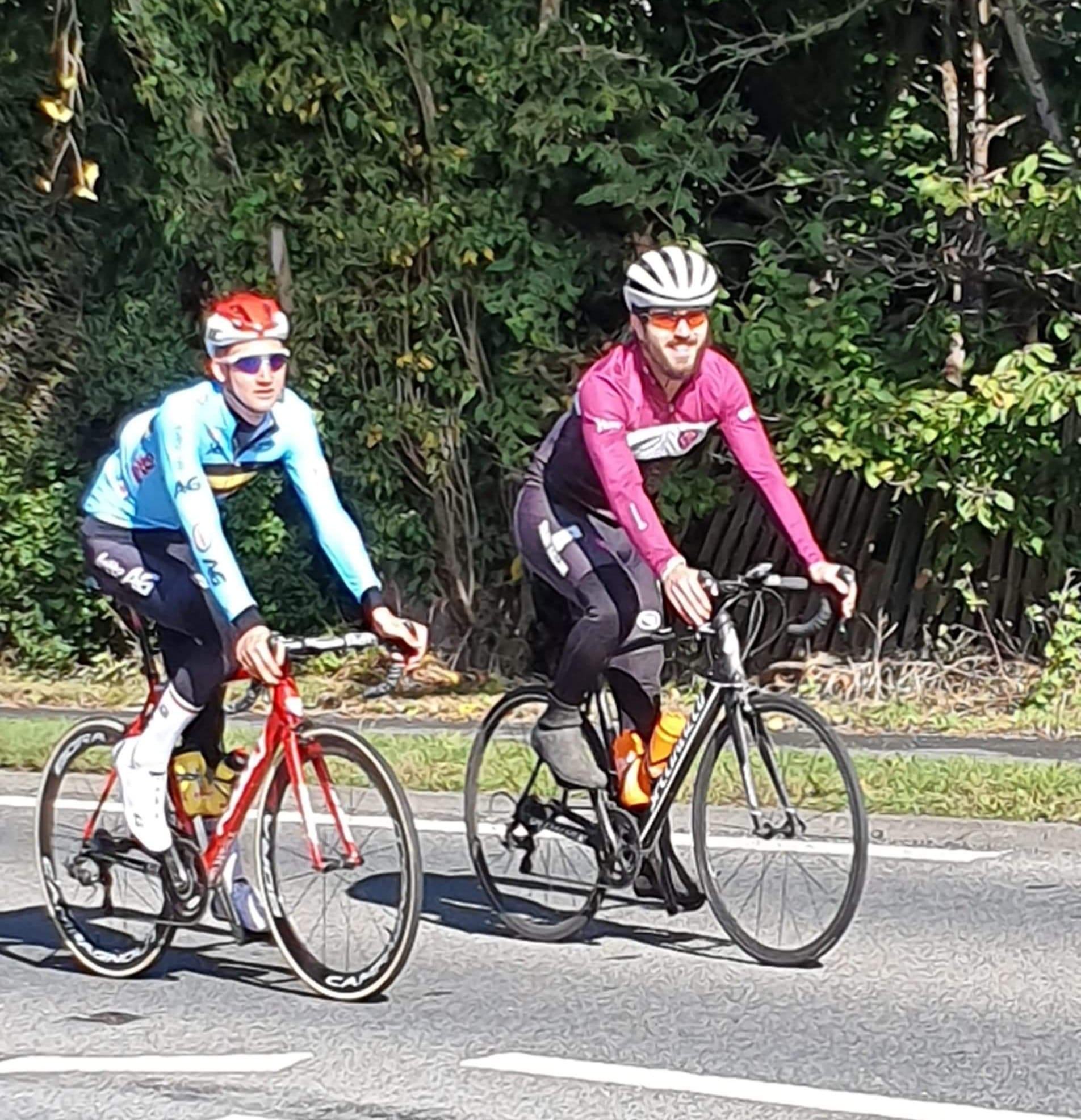Tour de France facts: stats from the world's biggest bike race
We all know Armstrong was a long term cheater and that a win from Bernal this year would go down in history - but records go back much further...
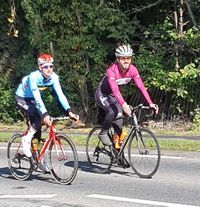
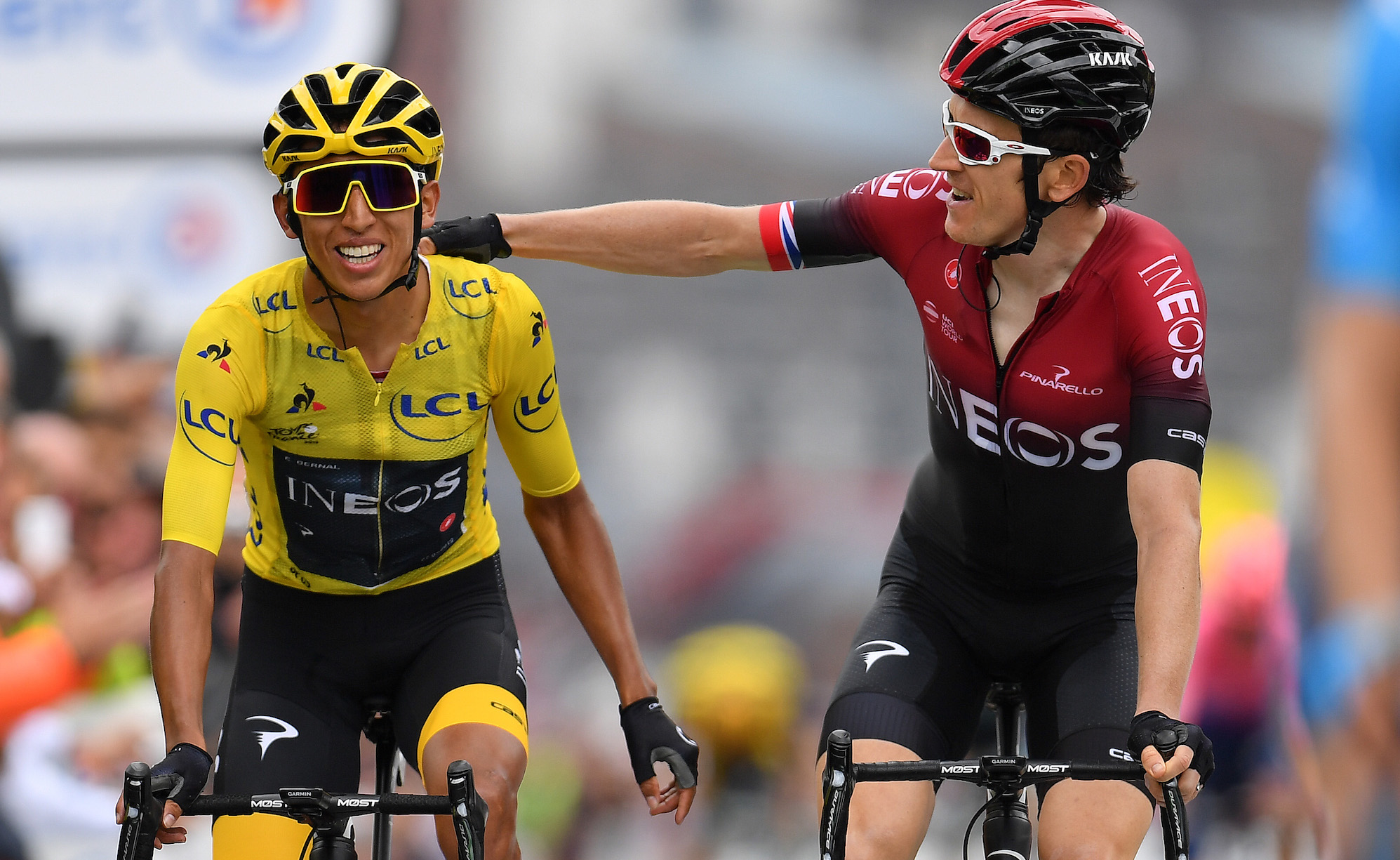
Egan Bernal and Geraint Thomas finish stage 20 of the Tour de France 2019 (Photo by Justin Setterfield/Getty Images)
The latest race content, interviews, features, reviews and expert buying guides, direct to your inbox!
You are now subscribed
Your newsletter sign-up was successful
With the Tour de France caravan upon us, a long August and September of racing stretches out ahead of the peloton and its fans.
The French Grand Tour is the most famous of the three, and attracts record audiences - with a claimed 3.5 billion people in 190 different countries reportedly tuning in annually.
We're now embarking upon the 107th edition of the race, which first took place in 1903 - as a marketing ploy to up the sales of the newspaper L'Auto.
We've come a long way, since. Here are some of the perfect stats to accompany your next Tour watching pint...
Fastest Tour de France: 41.7 kph
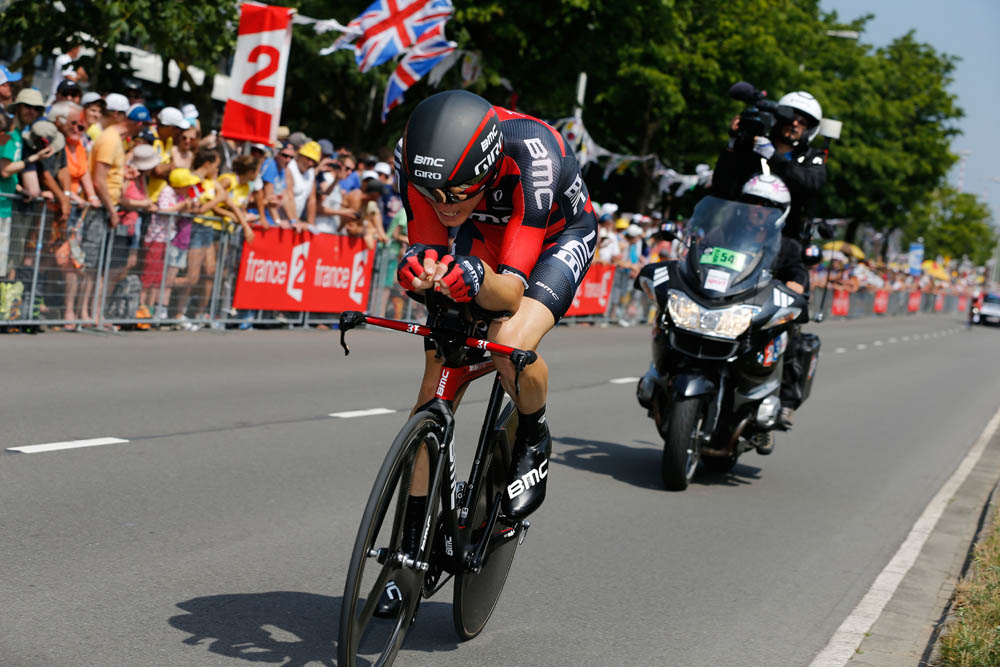
Unsurprisingly, the fastest ever race, overall, came in the Armstrong years. Lance rode 3592.5 km in 86 hours 15 minutes 02 seconds - at an average speed of 41.7 kph (25.9 mph). He had some support.
Individual stages can be even faster.
The latest race content, interviews, features, reviews and expert buying guides, direct to your inbox!
The fastest road stage was the 194.5km stage from Laval to Blois in 1999, which was won by Mario Cipollini at a blistering 50.4kph.
Rohan Dennis holds the fastest time trial crown, with his 2015 stage one performance at 55.45kph. He did only have to ride 13.8km, though.
Slowest Tour de France: 24.1km/h
On the other end of the scale, in 1919, Firmin Lambot won the race with the slowest ever winning average speed of 24.1km/h.
Longest Tour de France: 1926
In 1926, the route was 5745 kilometres long - that's 3570 miles. That year, there were only 17 stages, but the longest of them was 433 km from Metz to Dunkerque. At least it was flat.
The 2019 route is 3460km/2150m - and the longest stage will be on day seven, at 230km from Belfort to Chalon-sur-Saône.
Most impressive cheating effort: Unawarded
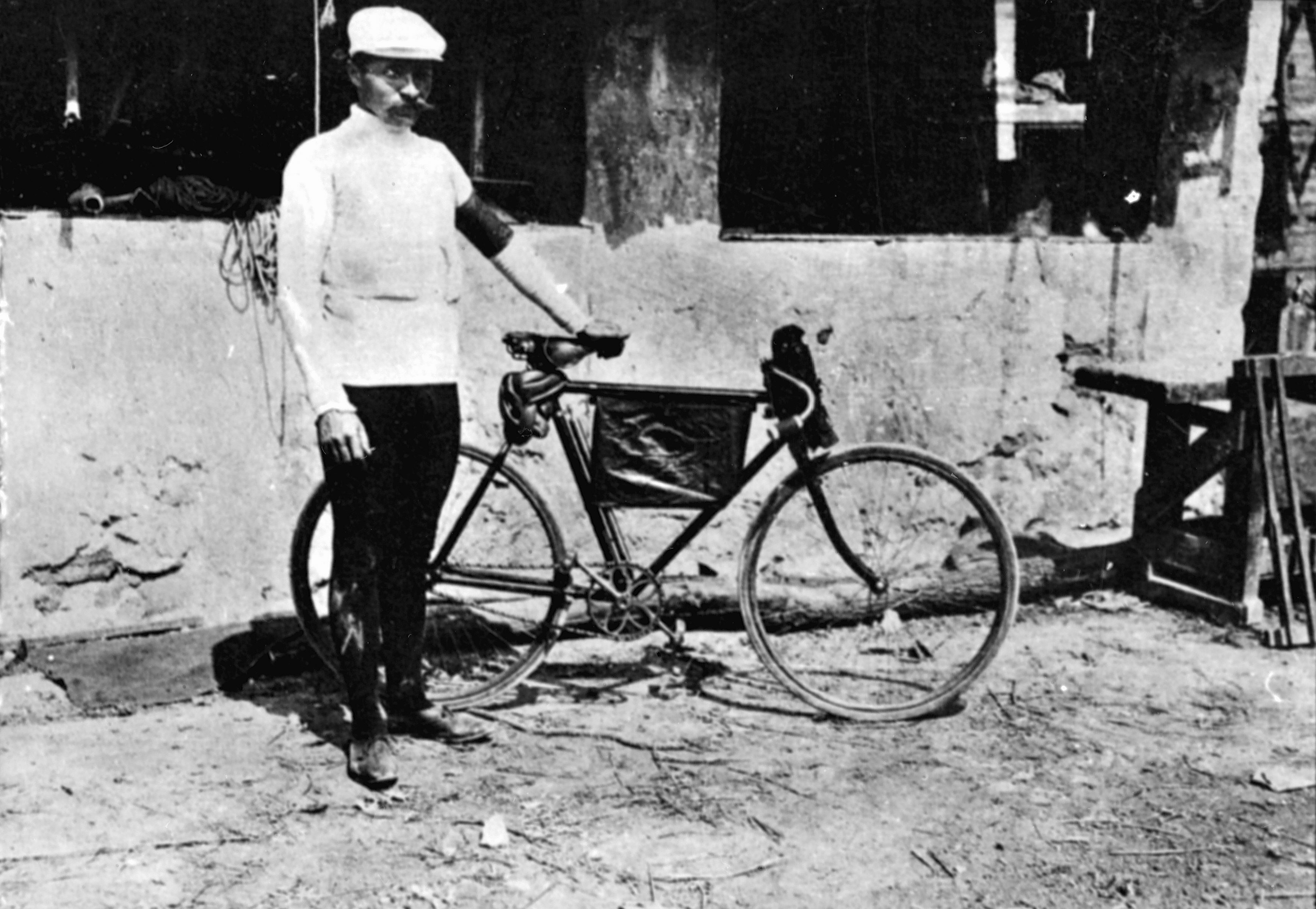
It's hard to choose one winner of this subjective category.
The Lance Armstrong era is of course renowned for its cheating history, with the seven time winner being stripped of all his titles gained from 1998 and 2005 following his admission of doping.
However, cheating at the Tour de France far pre-dates the late 90s. In fact, the race's first winner, Maurice Garin was stripped off his second title in 1904 along with eight other riders.
>>> 14 Tour de France rules you probably didn’t know
The cheating was arguably more creative then - including (but not limited to), the use of public transport (trains), being motor paced by a vehicle (attached to the rider via a cork and wire mechanism, held in the mouth), sabotaging the competition with itching powder and having on-side fans throw tacks onto the road in front of rivals.
So - who should win the competition? Hard to say, but Garin and his contemporaries certainly win for inventiveness.
Participation award: Sylvain Chavanel
The French cyclist started 18 editions of the Tour de France, between 2001 and 2018. He didn't finish in 2007 or 2012, but still holds the award for most finishes, jointly with Dutch rider Joop Zoetemelk.
The two had been ousted by George Hincapie, but his doping disqualifications put pay to his place in the chart.
Most stage wins: Eddy Merckx
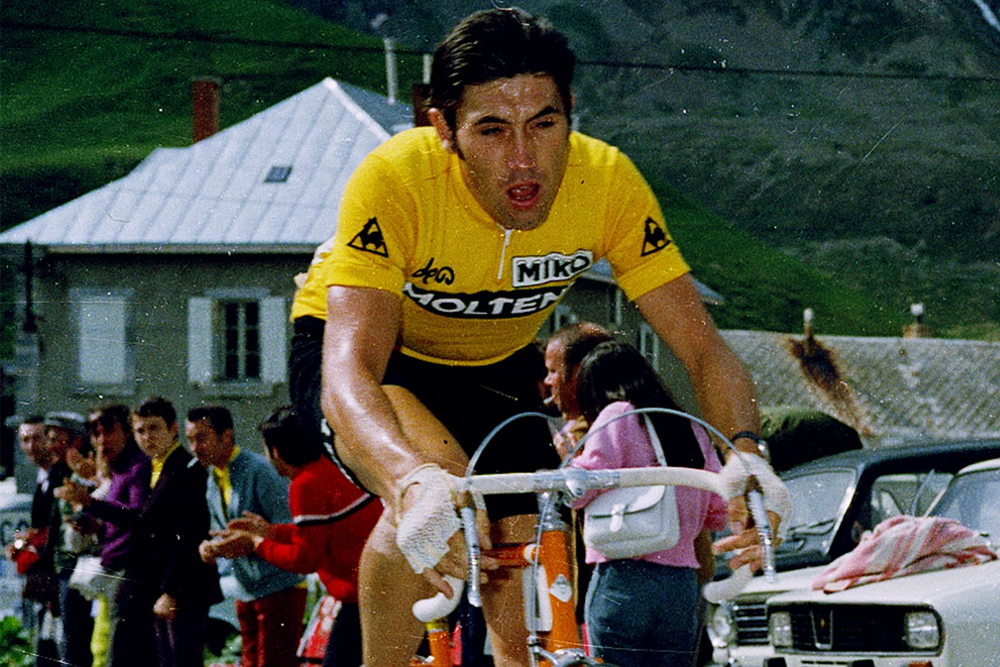
AKA: The Cannibal
Mercx famously has 34 stage wins to his name. It's no secret that surpassing this target is a goal for Bahrain McLaren's Mark Cavendish - however the 35-year-olds non-selection for the 2020 Tour de France has put his pursuit of the goal on hold.
Merckx also holds the title for most days in the yellow jumper - at 96.
Most overall wins: Jacques Anquetil, Eddy Merckx, Bernard Hinault, and Miguel Indurain
It's a tie between these four big hitters, who have each won the Tour five times.
Chris Froome (Team Ineos) had hoped to try to equal them and get into the quintet club this year, but he didn't make the cut for Team Ineos as he still recovers from his 2019 crash.
Most stage wins, nationally: France
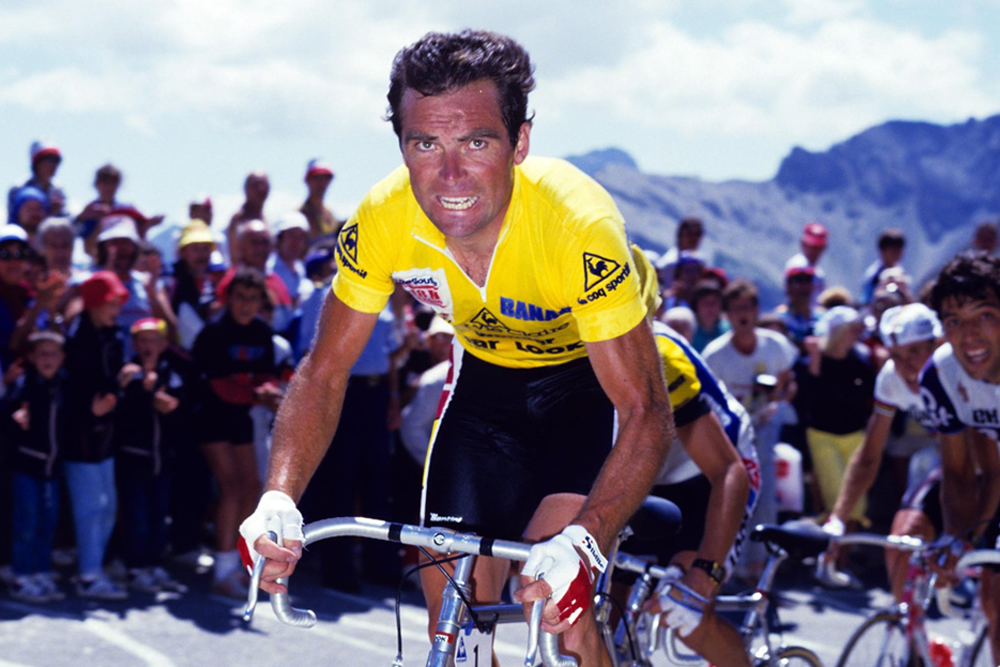
Riders from the home nation have successfully got their hands in the air 702 times.
Unfortunately for the French, the country's last GC winner was Bernard Hinault, back in 1985 - that's 34 years ago now.
Smallest winning margin: 8 seconds
https://www.youtube.com/watch?v=Zzjv1XpGJnc
Entering the final stage of 1989 Tour de France, two-time winner and Frenchman Laurent Fignon led by 50 seconds.
But using aerobars and a new sleek aero helmet, Greg LeMond managed to complete the course 58 seconds up on him, to take the overall by just 8s, after over 2000 miles of racing.
It's long been noted that Fignon's ponytail, which caught the wind throughout, may well have cost him his third win.
Largest winning margin: 2 hours 49 minutes 45 seconds
That was the difference between 1903 winner Maurice Garin and second placed Lucien Pothier.
Oldest rider to win: Firmin Lambot
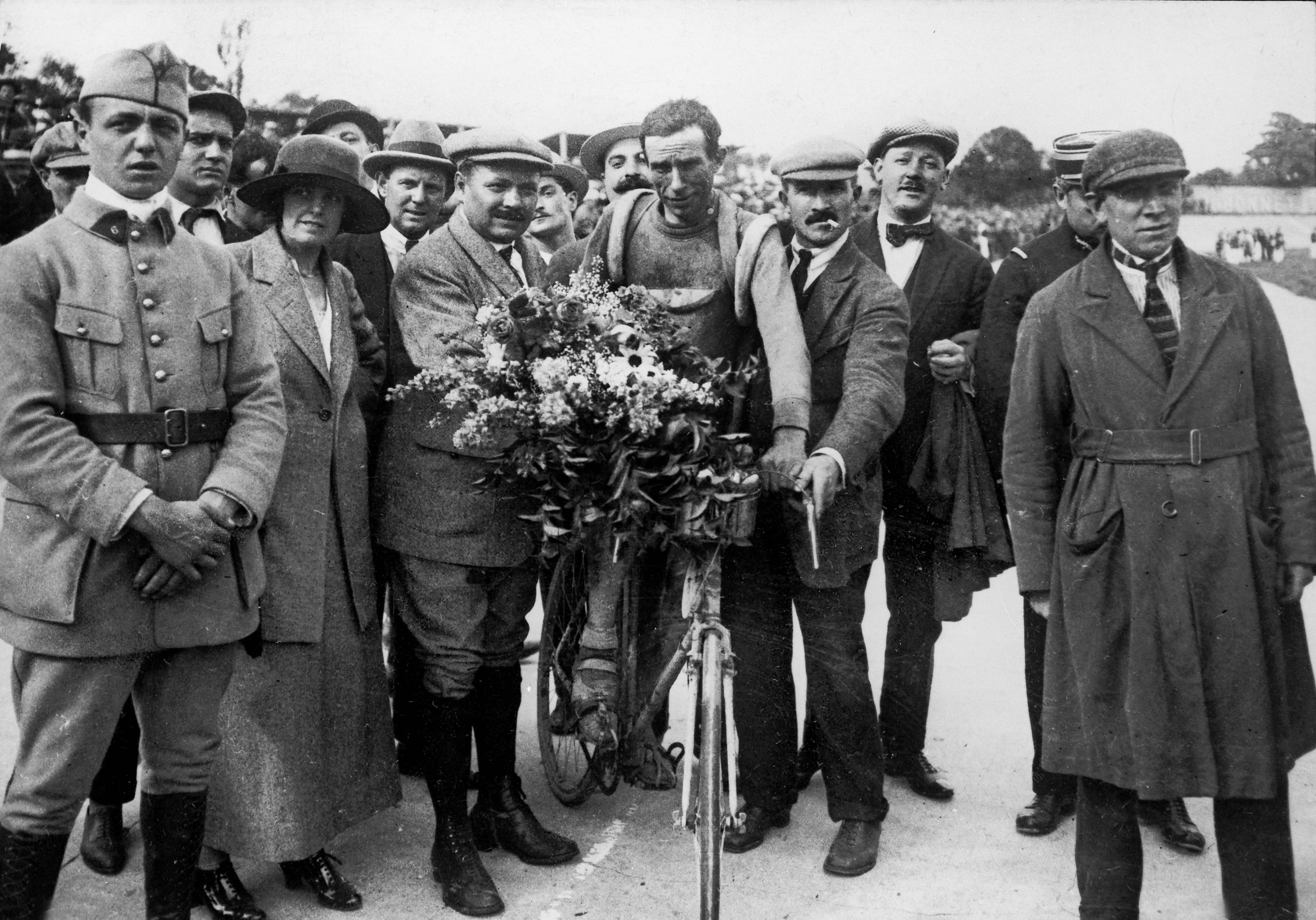
The oldest ever winner of the Tour de France was Firmin Lambot, at 36-years-old when he proved himself the fastest in 1922.
He's not the oldest Grand Tour winner, however, that title goes to Chris Horner who took the top step at the Vuelta a España aged 41 back in 2013.
Youngest rider to win: Henri Comet
The naysayers suggest that Team Ineos' Egan Bernal is just too young to win this year's Tour, at 22-year-old. But the bookies favourite would be far from the youngest. Comet was 19-year-old when he won in 1904.
Admittedly, that was following the eight disqualifications that took place for cheating that year.
>>> Tour de France commentator bingo
Arguably, though, Comet's shoes are not the best to aim to fill. The following three years, he did not finish, coming eighth in 1909, before another DNF, then 16th, 12th and 28th from 1910 to 1912.
Last female winner: Emma Pooley
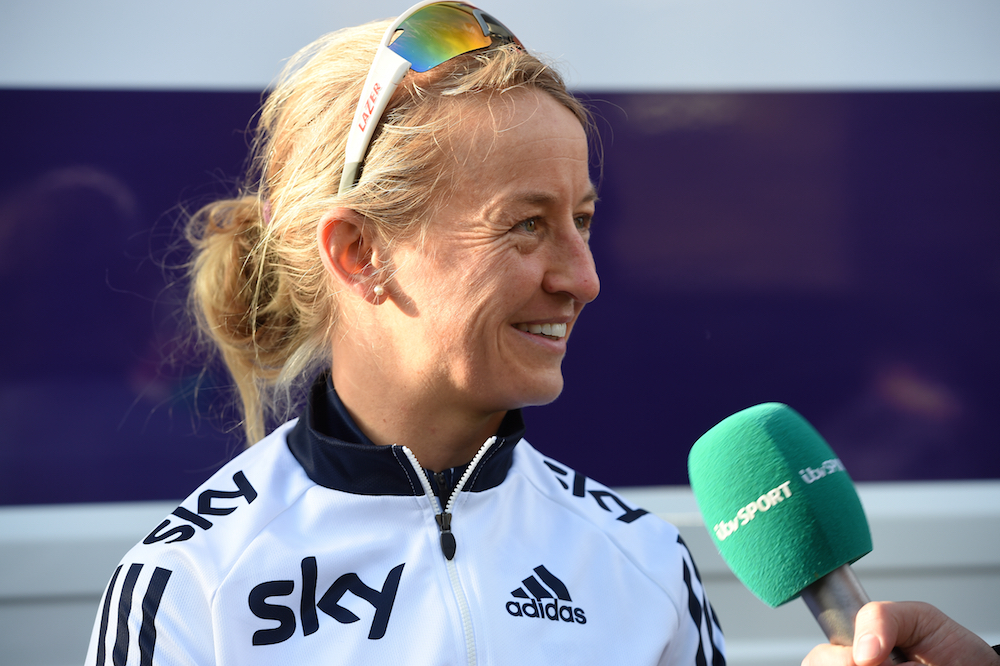
The last edition of the Women's Tour de France took place in 2009 - and it was won by Britain's own Emma Pooley. Nicole Cooke won twice, in 2006 and 2007 too.
The lack of a women's Tour de France is a bone of contention for many. Organisers, ASO, finally agreed to put on a one day race 'La Course' in 2014.
However, they've never let it get beyond a two-day event, with the decision to opt for a 'pursuit' style handicap time trial in 2017 a particular disappointment.
But now, the women's Tour de France has been given the go ahead for 2022 by the head of the UCI, David Lapartient.
Tim Bonville-Ginn is a freelance writer who has worked with Cycling Weekly since 2020 and has also written for many of the biggest publications in cycling media including Cyclingnews, Rouleur, Cyclist and Velo.
